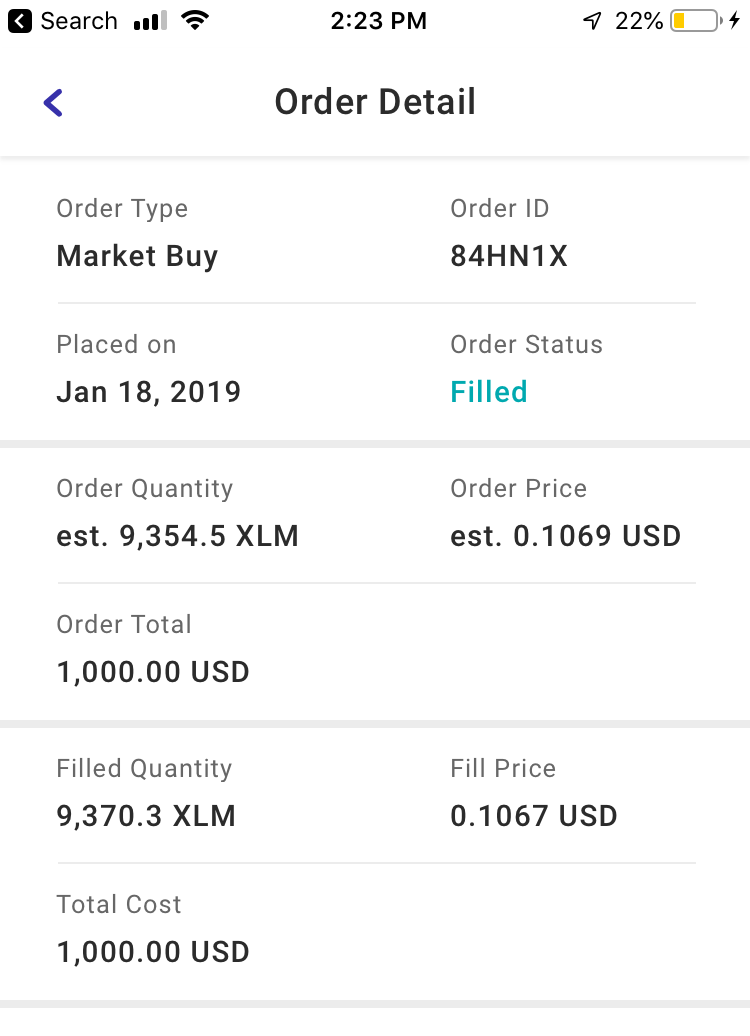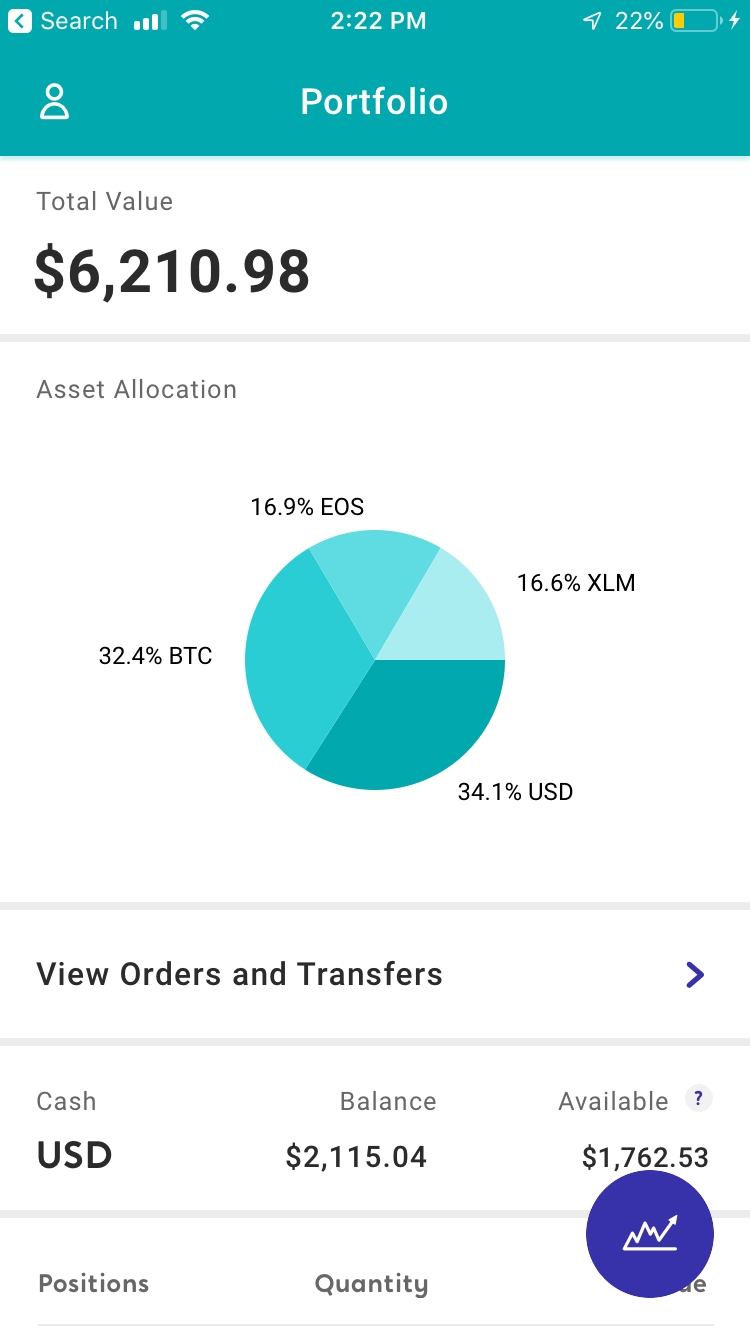
By CCN.com: Voyager aims to be the easiest way to trade cryptocurrency. The crypto brokerage app lets the user simply place an order and allow Voyager to do the rest. The company is connected to more than a dozen cryptocurrency exchanges around the world. It uses advanced metrics to find the user the best trade and does not charge a commission.
If price improvement is delivered on a trade, Voyager captures a small spread, which is determined algorithmically. Unlike other models, however, it does not make money simply by virtue of people trading. Their model incentivizes them to find good trades.

Founding CEO Steve Ehrlich has been in capital markets since 1994. His first company sold its institutional business to E-Trade in 1999. At that point, he became involved in electronic trading. “That’s when I started to learn how electronic brokerages and capital markets all worked,” he says in a recent interview with CCN. He says that in 2006, he bought back an online trading division from E-Trade and created Lightspeed Financial, an online brokerage.
Voyager Aims to Offer the Best Possible Trade

Ehrlich sold that company some years later. The crypto boom of 2017 drew Ehrlich in. In the intervening years, he had become acquainted with quantitative and API-driven trading strategies, and he brings that knowledge with him to the crypto world.
I started analyzing the market and the market structure of crypto trading. We sat around a table and looked at the crypto market, and I said, ‘This market looks very much to me like the equities market in the 1990s, when there were multiple ECN’s and ATS’s and there were cross-markets.
I really think we could bring a value proposition to consumers by offering connection to multiple exchanges and being able to deliver a best-execution capability to retail customers. And that’s how I got in.

Voyager does exactly that. It’s simple for the user: she enters a trade and the Voyager system finds that trade or a better one. The Voyager user doesn’t need to maintain multiple exchange accounts, which is not only a hassle but also a security risk. Voyager does that for them, exactly the way brokerages have always done. The process is simple for the user, but very complex on Voyager’s side. Of the mechanics, Ehrlich says:
Best execution has four components: price, quantity, the depth of liquidity, and the reliability of the API on the exchanges. We look at all those factors and try to get you the best execution possible. […] We’ve built a really detailed, complex algorithm to make sure that we can execute across all those exchanges and still be able to bring back a best execution quality back to our customer.
Voyager is currently in private beta. Over 100,000 people are on a waiting list. They’re currently working with 18 different cryptocurrencies. They consult their lawyers before adding any cryptocurrency.
On Crypto Exchanges Faking Volume
Ehrlich says that Voyager has done some research to figure out which exchanges are providing honest volume figures. When asked if there was a correlation to traditional markets faking volume, he says that he does recall some getting into trouble for faking numbers.
I think in the equity world, because of the direct oversight by the SEC, it was probably something that was easier to find. Remember, in the equity world, you had to post your orders directly on the tape and they had 90-second rules and so forth.
With this, you have to investigate and find out the reliability of the liquidity. And there’s a lot of testing that goes into that, and that’s how we built our algo. In this world, there’s less rules, so you have to do your homework and make sure it’s executable liquidity.
He says that his firm is not against working with emerging decentralized exchanges. Vetting is necessary, of course. Voyager’s perspective is getting the best possible trades, regardless of where they are found.

On the Importance of Cryptocurrency Regulation
Ehrlich strongly believes that regulation helps markets grow in ways that benefit all parties. As he previously said, the crypto market currently does not have a lot of regulation. Bad actors were frequently caught in the old days, and with blockchain technology, it’s likely to be even easier to catch bad actors. Ehrlich said:
Regulation in the crypto space will help increase the acceptance of crypto across all types of customers. I think it’s really important that we get a landscape over time. And I believe that the regulators are taking the proper approach at this time. They are evaluating everything. I think you have knock-on effects. You could put something in place and it affects the market structure but then it might hurt capital rules.
So I think they’re taking a very measured approach to what regulation comes in. I think it’s super important. I think it helps validate the industry. There’s a lot of validation in the industry when bigger names than myself make investments in cryptocurrency, names like Goldman and Fidelity. They’re validating the industry. But the last step before it becomes really widely acceptable to everybody is for the regulators to accept it and put some rules in place.
The Voyager App
The Voyager App is currently in private beta. Again, over 100,000 people have been invited to try it out. CCN was privy to a demonstration of how it works.

At launch, it will not accept cryptocurrency deposits. Crypto deposits and withdrawals should be available after the first major update. The iOS app is expected to be publicly available sometime this quarter, with the Android app following in Q3.
If not the first, it will be among the first apps to enable easy order execution across multiple exchanges. As the market progresses, the crypto industry is likely to see more and more apps and brokerages which do the hard work.
Featured Image from Shutterstock





